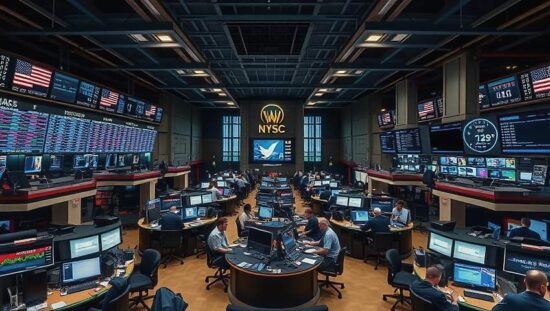German equities experienced a muted performance Friday, reversing early gains to finish marginally lower in the final trading day of the week. The benchmark DAX index initially showed a slight upward trend, reaching approximately 23,740 points around 9:30 am – roughly equivalent to Thursday’s closing level. However, investor sentiment quickly shifted, pushing the index briefly into negative territory.
The unexpectedly positive export figures released earlier in the morning by the Federal Statistical Office failed to provide sustained momentum. While economists acknowledged the encouraging surge in exports to the United States, a deeper analysis reveals a troubling long-term stagnation trend. “The significant export increase to the US is encouraging” noted Thomas Gitzel of VP Bank. “However, the overall development remains unconvincing. The real, inflation-adjusted development indicates that exports have been stagnant since 2018.
This persistent stagnation raises serious questions about the underlying health of German industry and its reliance on external demand. Critics argue that the continued dependence on exports, particularly to a slowing global economy, renders Germany vulnerable to external shocks and hinders necessary domestic reforms. The relatively weak performance of the Euro, trading at $1.1535, further complicates the situation, potentially mitigating some of the benefits derived from the export uptick while simultaneously increasing pressure on German exporters facing competition in global markets.
The disconnect between the immediate statistical success and the underlying structural issues highlights a deeper malaise within the German economy, prompting renewed calls for policies that foster domestic investment and diversification beyond traditional export-driven models. The lack of sustained positive reaction to seemingly positive data points also signals a growing skepticism amongst investors regarding the government’s ability to navigate the current geopolitical and economic headwinds.





